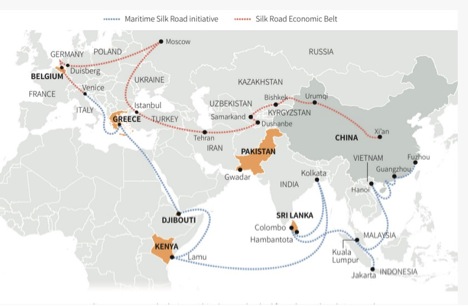Tibetet Segítő Társaság Sambhala Tibet Központ
Tibet Support Association Sambhala Tibet Center
székhely / telephely H-Budapest I. Attila út 123..
(00-36) 70 431 9343 (00-36)70 944 0260 (06-1)782 7721
sambhala@tibet.hu www.tibet.hu tibetpress.info
Facebook/Sambhala Tibet Központ Facebook/Tibett Segítő Társaság
MagnetBank/ 16200010-00110240
IBAN/HU94 16200010 00110240 00000000 SWIFT/HBWEHUHB
(1%) adószám/ 18061347-1-41
nyitva tartás/hétköznap 12.00-20.00 hétvégén előadás függő
» Retro» Tibeti művészet» Interjú» Levelek» Tibet Press» Tibet Press English» Dharma Press» Human Rights» Világ» Kína» Magyar» Ujgur» Belső-Mongólia » KőrösiCsoma» Élettér» Határozatok» Nyilatkozatok» tibeti művészet» lapszemle.hu» thetibetpost.com» eastinfo.hu» rangzen.net» ChoegyalTenzin» tibet.net» phayul.com» DalaiLama.com» vilaghelyzete.blogspot.com» Videók» Linkek» TibetiHírek» Szerkesztőség
Mit jelent a tibeti kérdésre nézve hogy Xi Jinping magához ragadta a hatalmat?
2018. február 27./CTA/TibetPress
Jelenleg csak angolul olvasható. Magyarul később.
eredeti cikk
By Dr. Rinzin Dorjee*
The official Chinese news agency, Xinhua, announced that Xi Jinping will clutch to the power after 2022. This generated much discourse amongst China experts and scholars lately. Xi will be the second leader in the history of modern China breaking the CCP’s constitutional provision of ten years tenure.
There are two possible scenarios with regard to Tibet issue under Xi Jinping rule. One, as I have mentioned in an earlier article, observing the style by which Xi has assumed a kind of dictatorial rule over party and State, scholar’s predictions are correct to a certain extent. When Xi has power over anything on his table, the shelved issue of Tibet may open to a true new era for Tibetans. But, consolidation of power and breaking the two terms is not enough. Xi needs to dismantle the Minzu Establishment (China’s anti- splitism bureaucracy which include academicians on Tibet and party’s officials who are in the power in Tibet). This is a group who survives in blocking the path to find the solution to the Tibet issue with top Chinese leadership and one of the most corrupted groups in China. Whether Xi will do this or not only time will tell.
Secondly, as said by Lord Acton, a great British historian, “Power tends to corrupts; absolute power corrupts absolutely”. More power in Xi’s hand will repeat the Mao’s disastrous campaigns. Mao had remained in power for more than forty long years from 1935 until his death in 1976. Xi and Mao have many similar paths in their leadership strategy. Mao consolidated his power through land reforms in early 1950s and Xi resorted to anti-corruption campaign after taking control over the party. Mao’s Great Leap Forward campaign resulted in the death of nearly 50 million people in famine that followed, which constitute the most destructive campaign the Chinese people have endured.
But, modern China is different as Xi’s Belt and Road Initiative (BRI) has extended its hand to more countries than ever. Then the true intent of glorifying Xi and BRI internationally will make China the Middle Kingdom again. In the global competition for power China will create its own alliance to assert its policy abroad. In such scenario, the situation in Tibet will exacerbate under Xi’s rule.
*Dr. Rinzin Dorjee is a research fellow at the Tibet Policy Institute. Views expressed here do not necessarily reflect those of the Tibet Policy Institute.
